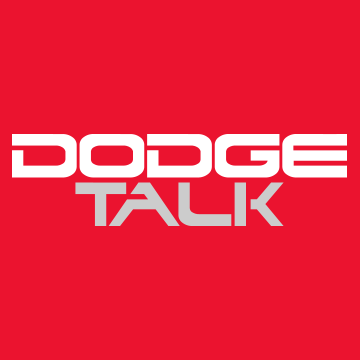Here's the skinny on the Why of brake squeal and the How to stop it. I was planning to append this to my thread on swapping brake pads, but it's come up enough lately that I think it'll be more helpful on its own.
For the purposes of this discussion, I'm talking about the intermittent squeal you get at less than full pedal pressure - NOT a constant squeal all the time, regardless of pedal pressure - that one likely means your pads are worn down to the limits and need to be replaced. There are also other conditions with faulty/worn parts that can cause it, but here I'm talking about the normal squeal that you'll encounter even if your parts are perfect.
A little groundwork: The brake pads are pressed to the rotors either by:
- Pistons on both pads (in the case of Brembos and Wilwoods, etc.) or by
- Piston(s) on one pad, against the floating caliper itself on the other side (in the case of stock brakes).
Either way, force is applied to each pad from something behind it.
Here's the matter at hand:
The squeal you hear is a result of vibration between the brake pad and rotor that occurs when less than full clamping force is applied to the pads. It's also called "chatter" or "rattle," but it's a squeal that you hear. That micro-vibration is eliminated by firmer pedal pressure (clamping force), but there are ways to eliminate it at lower pedal pressure as well.
To stop that micro-vibration, you need to dampen the contact patch between the back of the pad, and whatever acts upon it (piston or caliper).
In these two photos, you can see the wear marks on the back of each pad, and see where the contact patch is:
![Image]()
![Image]()
There are a few substances available to do the dampening:
This is what I was sold when I went in and asked for "anti-squeal":
![Image]()
Essentially the same as this (but NOT the same as chassis grease - you need a good Moly-based High-heat grease):
![Image]()
The best thing I've found is this - it's much tackier than grease, and lasts longer:
![Image]()
Before you apply whatever you decide to use, clean off all the contact surfaces well - the backs of the pads, and the face of the pistons/calipers:
![Image]()
![Image]()
Then spray (or smear) the stuff onto the contact patch:
![Image]()
And reassemble the caliper assembly:
![Image]()
This stuff is messy, and it will collect dirt. I suppose if you wanted to, you could take some brake cleaner or lacquer thinner to the exposed parts after it's reassembled. Probably not a bad idea.
Go for a drive around the block right away, and let everything seat where it wants to.
OK, one other thing you can do. These are called the anti-rattle clips, and their purpose is to apply some tension to the pads to keep them from vibrating:
![Image]()
You can tweak them a little bit so they apply more tension to the pads like so:
![Image]()
And here you can see the slight bend where the clip will contact the pad:
![Image]()
In most cases, the application of something to the contact patch will solve the majority of squealing issues. In my experience, grease did it temporarily. The tacky adhesiveness of the aerosol stuff seems to work a lot longer.
Hope it helps! Cheers.
EDIT: Within a week or so, it's a good idea to bed in the brakes. Here's the proper procedure for doing that, from Dave Zeckhausen:
http://www.zeckhausen.com/bedding_in_brakes.htm
For the purposes of this discussion, I'm talking about the intermittent squeal you get at less than full pedal pressure - NOT a constant squeal all the time, regardless of pedal pressure - that one likely means your pads are worn down to the limits and need to be replaced. There are also other conditions with faulty/worn parts that can cause it, but here I'm talking about the normal squeal that you'll encounter even if your parts are perfect.
A little groundwork: The brake pads are pressed to the rotors either by:
- Pistons on both pads (in the case of Brembos and Wilwoods, etc.) or by
- Piston(s) on one pad, against the floating caliper itself on the other side (in the case of stock brakes).
Either way, force is applied to each pad from something behind it.
Here's the matter at hand:
The squeal you hear is a result of vibration between the brake pad and rotor that occurs when less than full clamping force is applied to the pads. It's also called "chatter" or "rattle," but it's a squeal that you hear. That micro-vibration is eliminated by firmer pedal pressure (clamping force), but there are ways to eliminate it at lower pedal pressure as well.
To stop that micro-vibration, you need to dampen the contact patch between the back of the pad, and whatever acts upon it (piston or caliper).
In these two photos, you can see the wear marks on the back of each pad, and see where the contact patch is:
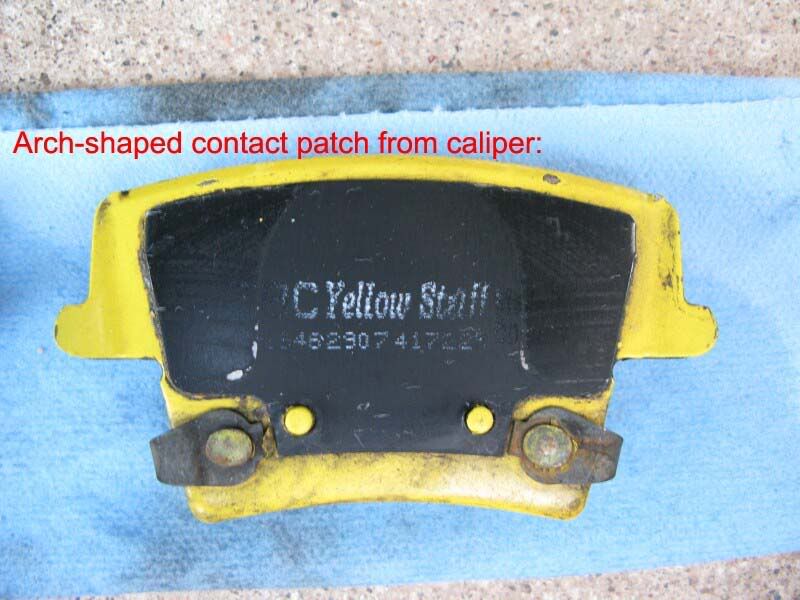
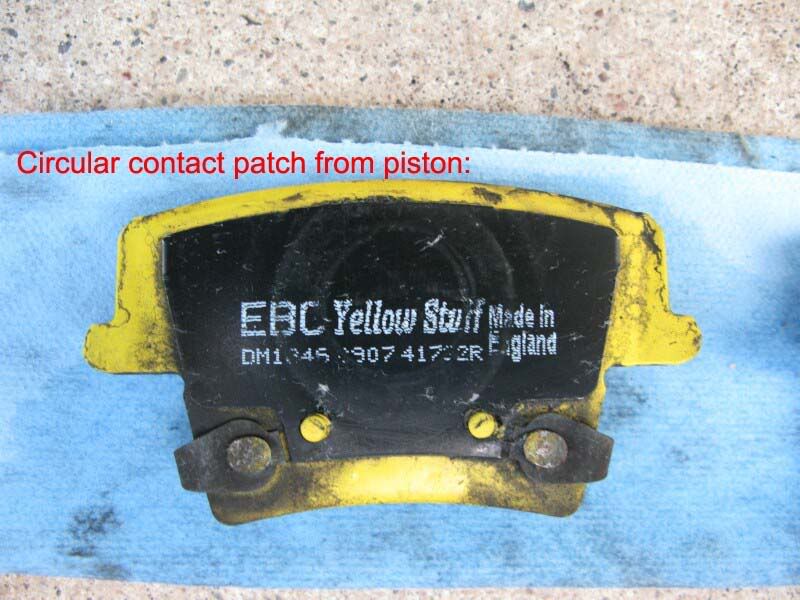
There are a few substances available to do the dampening:
This is what I was sold when I went in and asked for "anti-squeal":
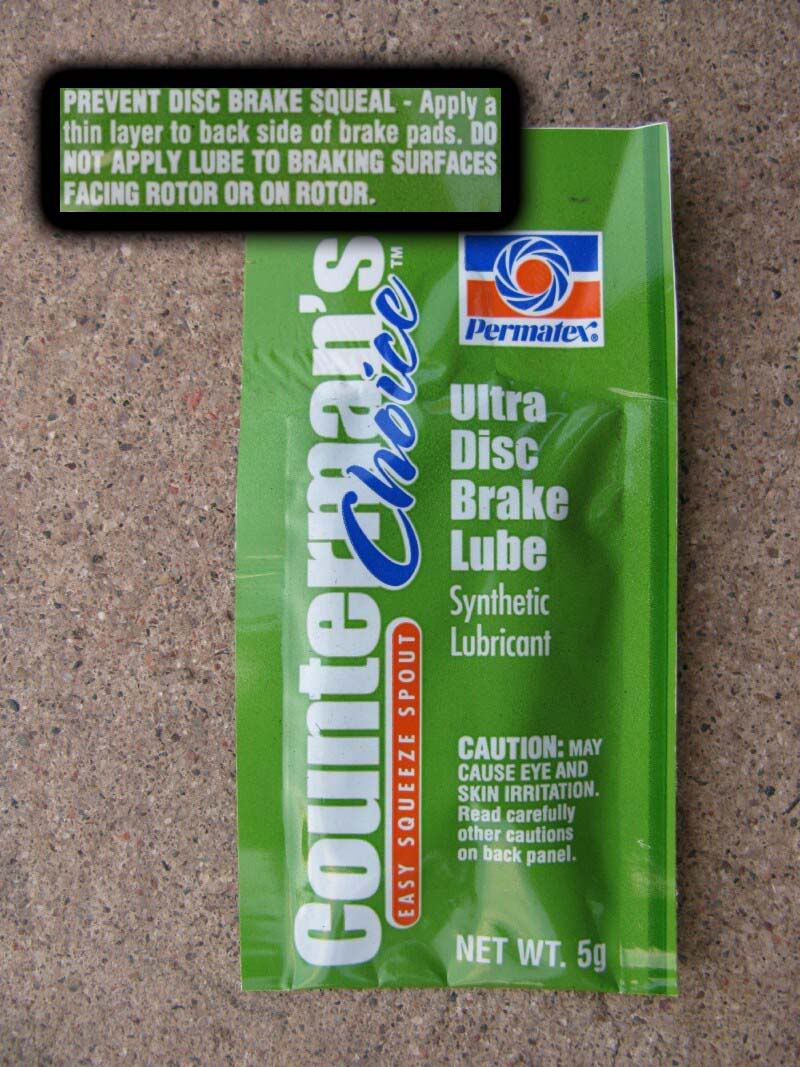
Essentially the same as this (but NOT the same as chassis grease - you need a good Moly-based High-heat grease):
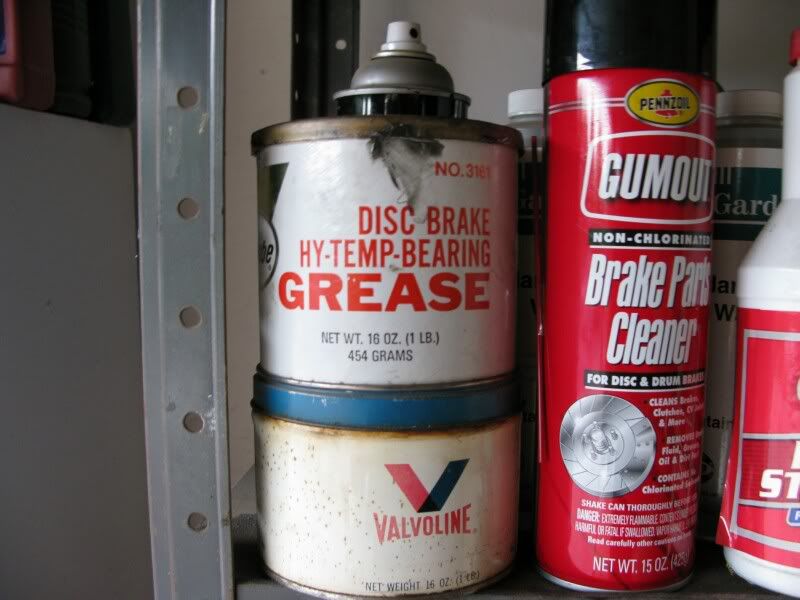
The best thing I've found is this - it's much tackier than grease, and lasts longer:
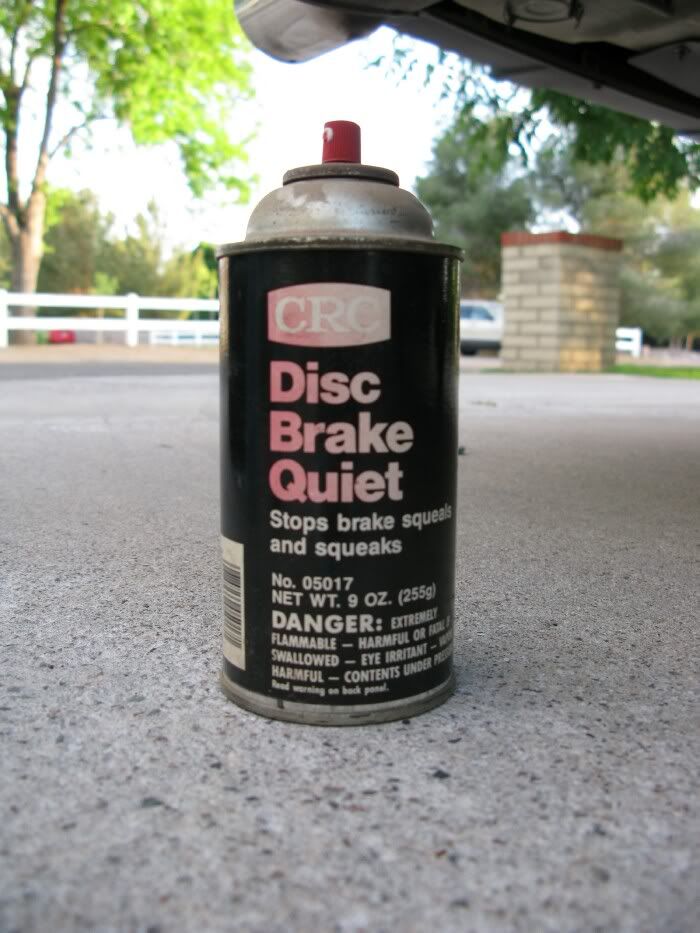
Before you apply whatever you decide to use, clean off all the contact surfaces well - the backs of the pads, and the face of the pistons/calipers:
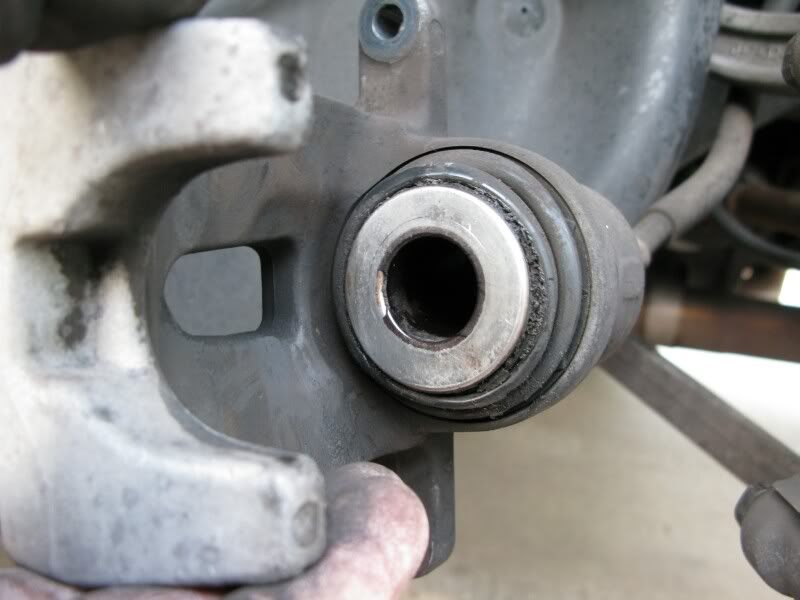
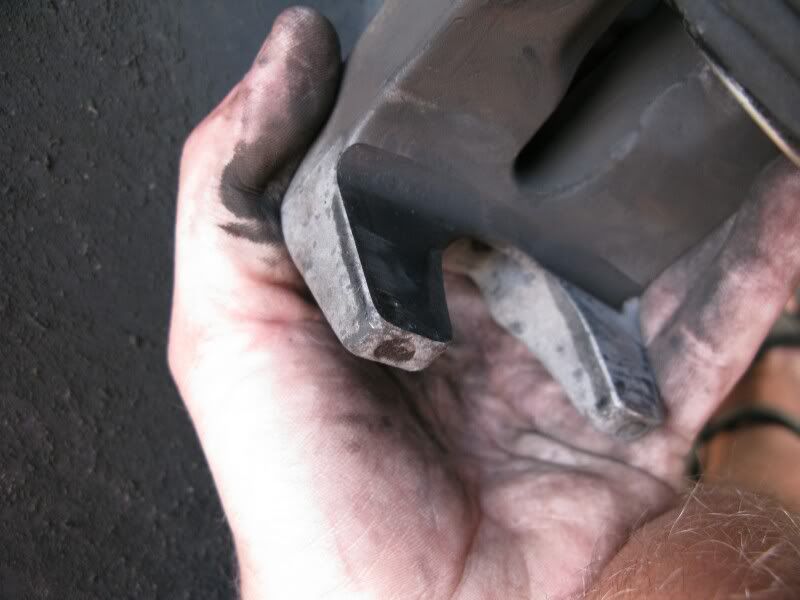
Then spray (or smear) the stuff onto the contact patch:
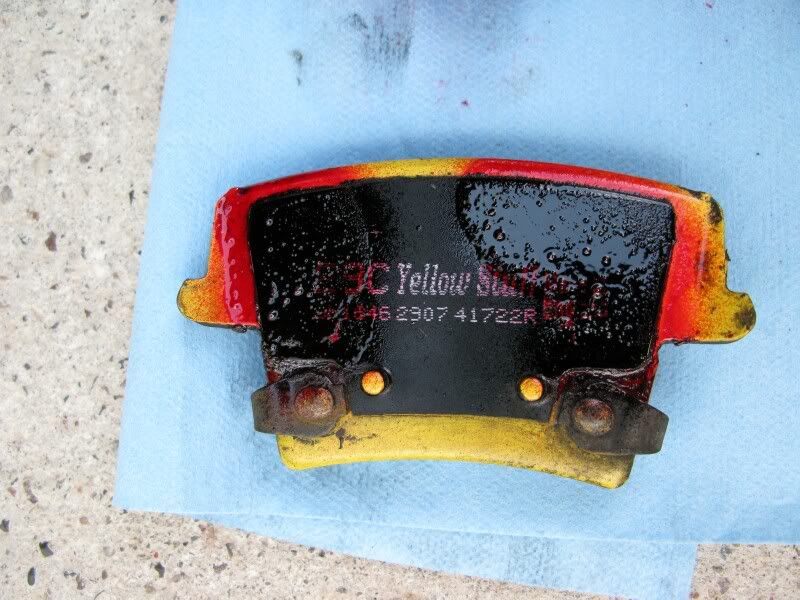
And reassemble the caliper assembly:
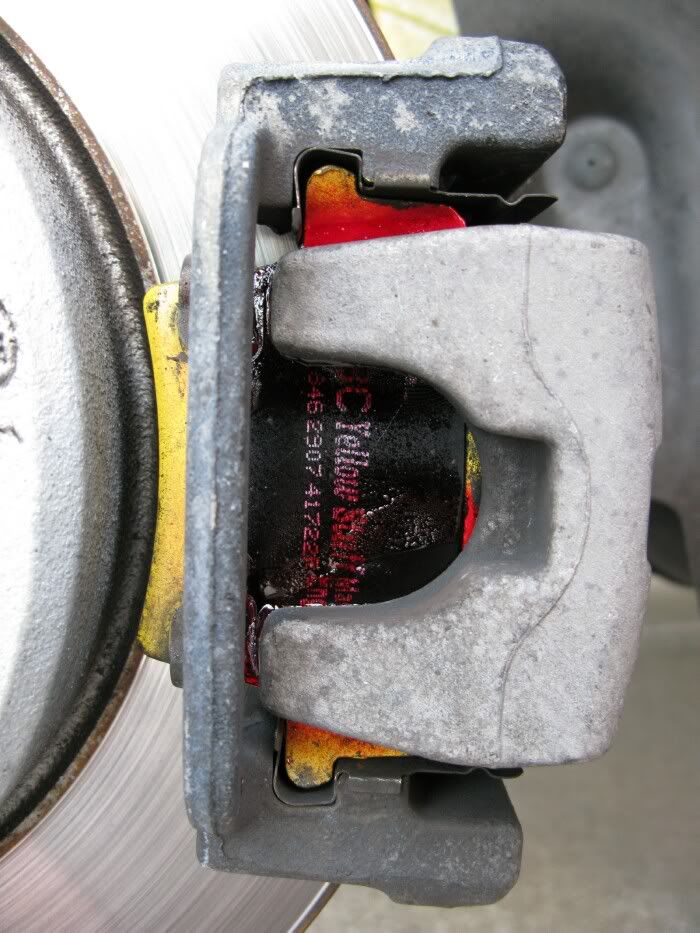
This stuff is messy, and it will collect dirt. I suppose if you wanted to, you could take some brake cleaner or lacquer thinner to the exposed parts after it's reassembled. Probably not a bad idea.
Go for a drive around the block right away, and let everything seat where it wants to.
OK, one other thing you can do. These are called the anti-rattle clips, and their purpose is to apply some tension to the pads to keep them from vibrating:
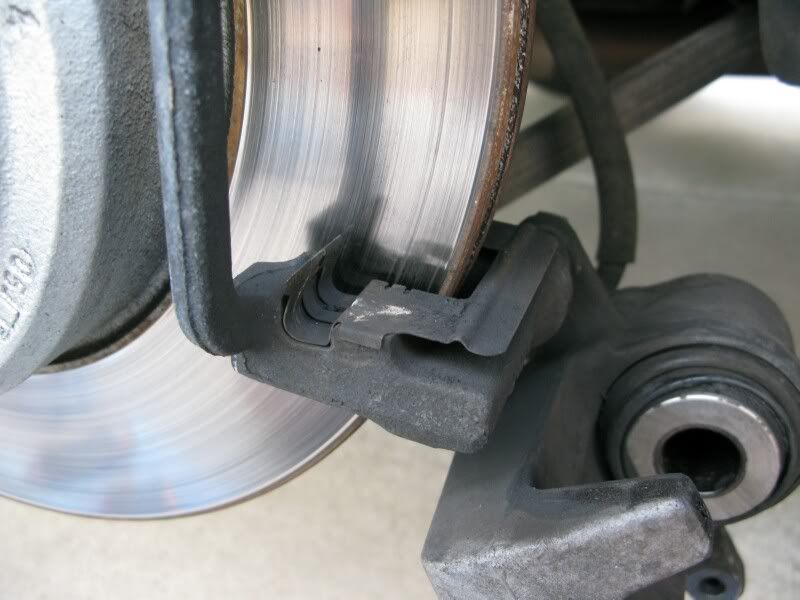
You can tweak them a little bit so they apply more tension to the pads like so:
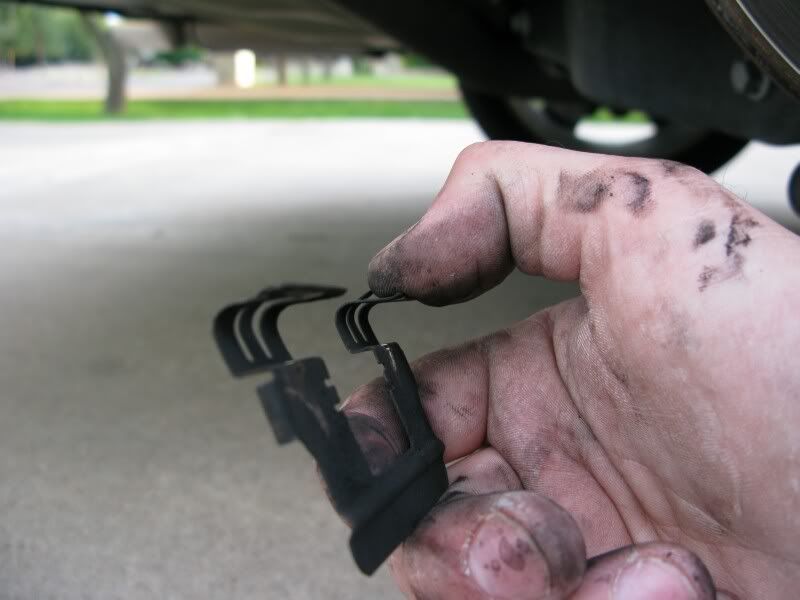
And here you can see the slight bend where the clip will contact the pad:
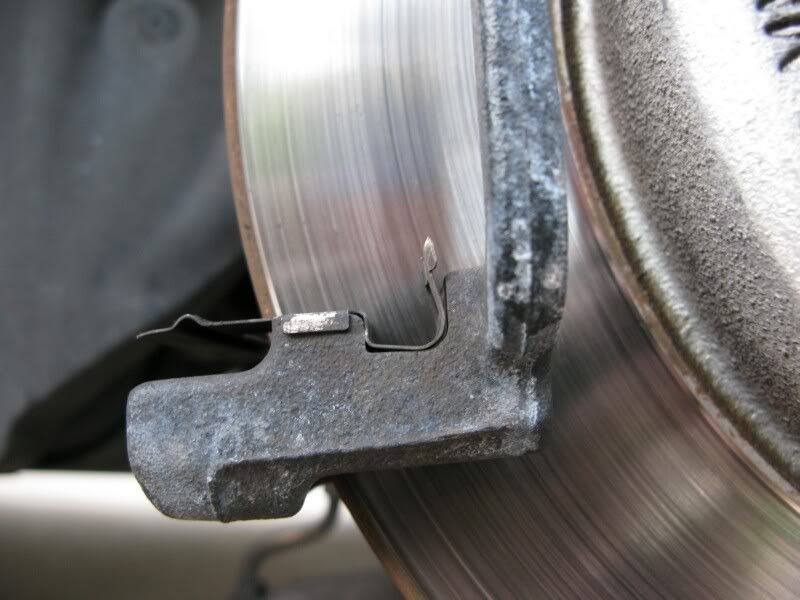
In most cases, the application of something to the contact patch will solve the majority of squealing issues. In my experience, grease did it temporarily. The tacky adhesiveness of the aerosol stuff seems to work a lot longer.
Hope it helps! Cheers.
EDIT: Within a week or so, it's a good idea to bed in the brakes. Here's the proper procedure for doing that, from Dave Zeckhausen:
http://www.zeckhausen.com/bedding_in_brakes.htm


